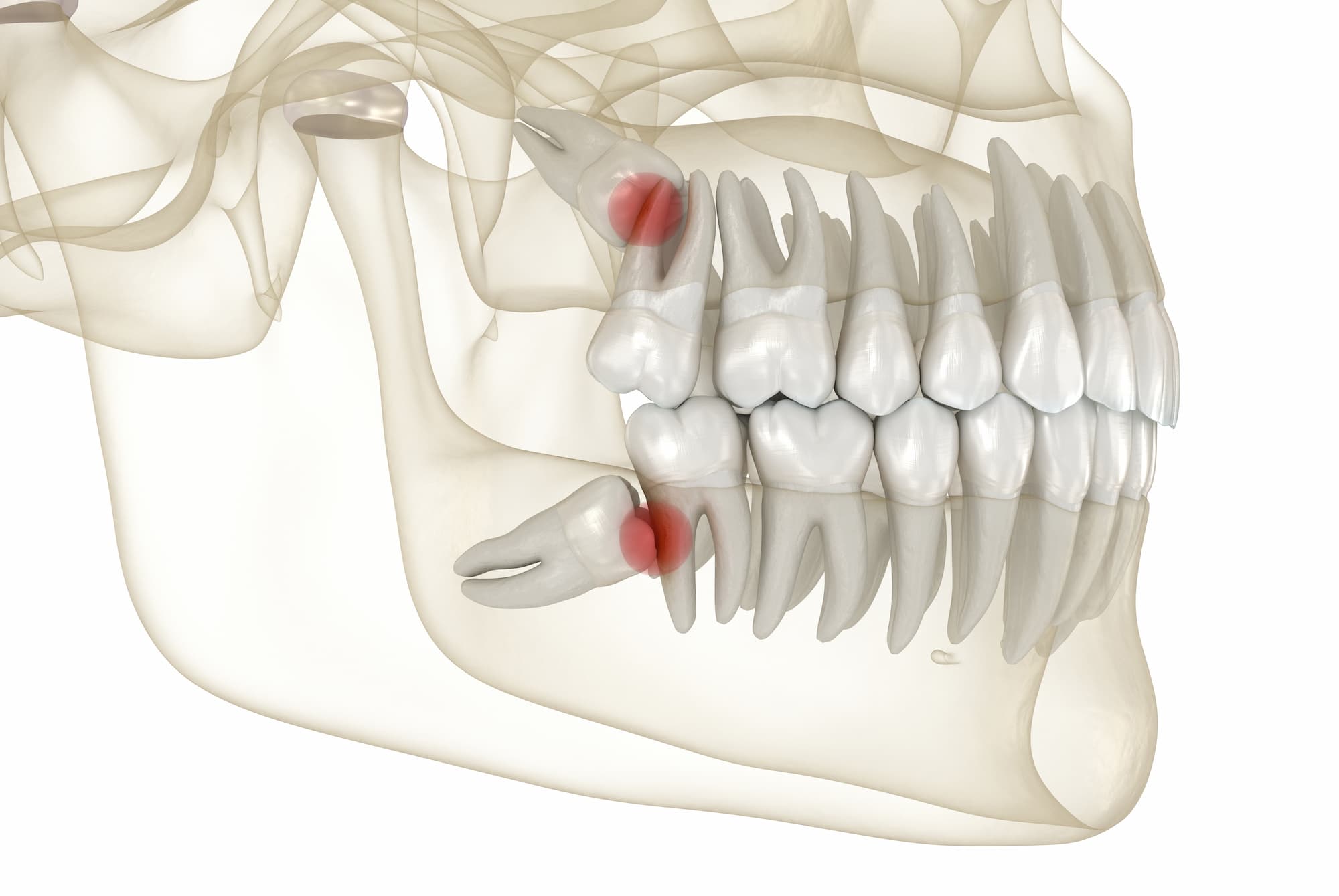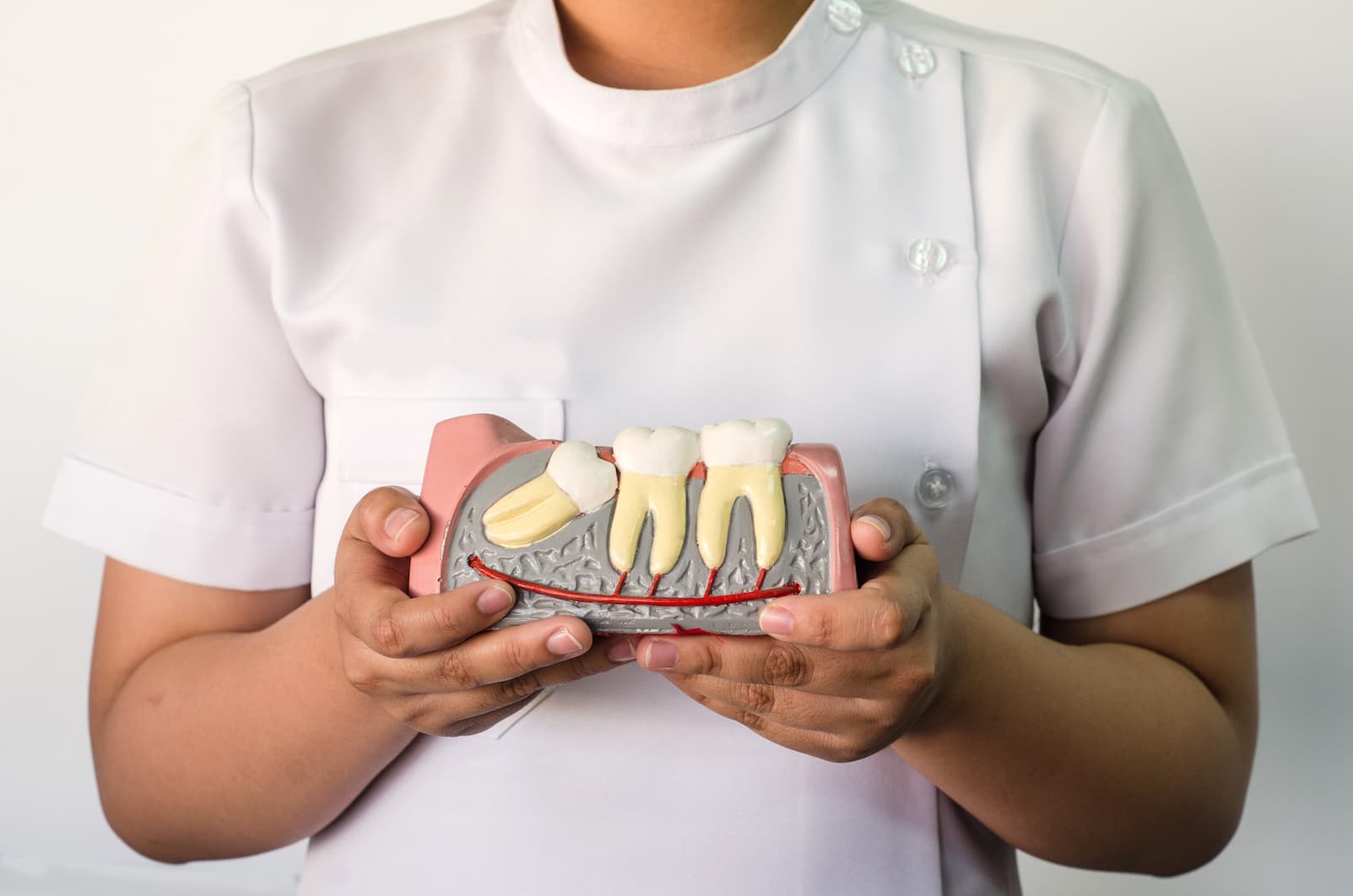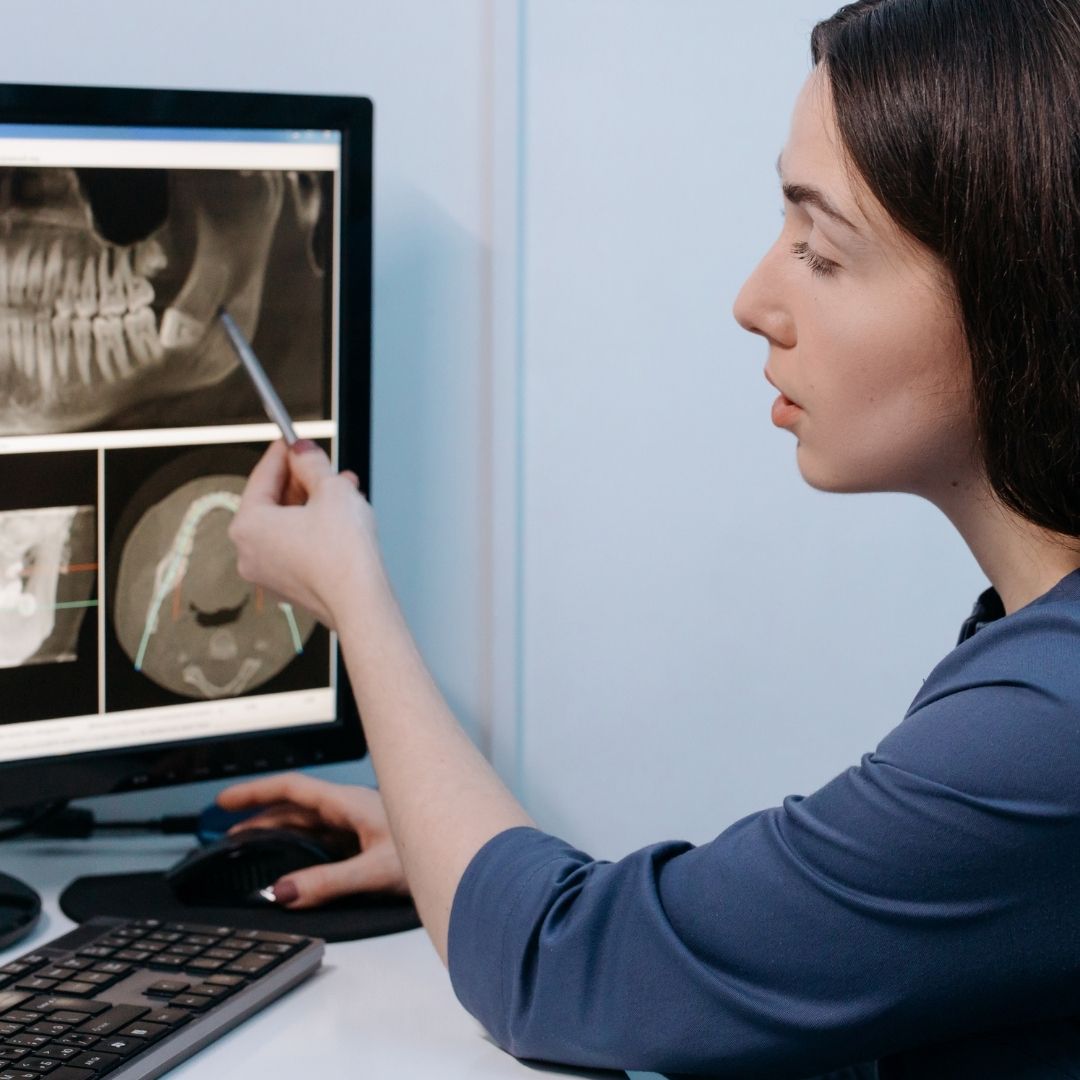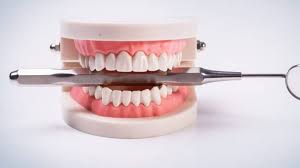
Wisdom Tooth Removal
Wisdom teeth, also known as third molars, are the last set of teeth to develop in the back of the mouth. They typically emerge in the late teens or early twenties, and for many people, they cause no problems. However, in some cases, wisdom teeth can cause pain, infection, or other dental issues that require removal. This leads to the age-old question: to remove or not to remove?
Decision-Making About Removing Wisdom Tooth
The decision for wisdom tooth removal is a personal one that should be made in consultation with a dentist or oral surgeon. Factors such as age, overall dental health, and the position of the wisdom teeth can all play a role in the decision-making process. In cases where the wisdom teeth are causing pain, infection, or other dental problems, removal may be necessary. However, if the wisdom teeth are healthy and not causing any issues, they may be able to be left in place.
Ultimately, the decision to remove wisdom teeth should be based on the individual’s unique circumstances and the professional advice of a dental expert. The decision to remove wisdom teeth is not always clear-cut. Dentists and oral surgeons typically evaluate the patient’s unique circumstances to determine the best course of action. Here are some common scenarios that may lead to wisdom tooth extraction:
Impacted wisdom teeth: If the wisdom teeth do not have enough space to fully emerge, they may become impacted, or trapped below the gumline. Impacted wisdom teeth can cause pain, swelling, infection, and even damage to nearby teeth.
Crowding: If the mouth is already crowded, wisdom teeth can cause overcrowding and push other teeth out of alignment. This can lead to bite problems, speech difficulties, and even jaw pain.
Infection: If wisdom teeth partially emerge from the gumline, they create an opening that can trap food and bacteria, leading to infection and inflammation.
Cysts or tumors: Rarely, wisdom teeth can cause cysts or tumors to form around the roots of nearby teeth. These growths can damage the jawbone and other teeth, making removal necessary.
If you are experiencing any of these issues, your dentist may recommend wisdom tooth extraction. However, if your wisdom teeth are healthy, fully erupted, and not causing any problems, you may be able to keep them.
It is important to note that wisdom tooth extraction is a surgical procedure that requires anesthesia and a period of recovery. Patients may experience swelling, pain, and discomfort for several days after the procedure. It is important to follow your dentist’s post-operative instructions and take any prescribed pain medication as directed.
In some cases, patients may opt to keep their wisdom teeth to avoid the risks and discomfort associated with surgery. However, it is important to discuss the potential risks and benefits with your dentist before making a decision.

Recovery and Aftercare Following Wisdom Tooth Removal
After having your wisdom teeth out, you will need to focus on your recovery and subsequent aftercare. It is possible for individuals to have swelling, bleeding, and discomfort immediately after the treatment; however, these side effects can be treated with cold packs, gauze, and pain medication. During the first phase of recuperation, it is essential to refrain from smoking and using straws, as well as eating foods that are chewy, crunchy, or spicy. This will allow the affected area to heal in an appropriate manner.
Patients should also maintain appropriate oral hygiene practises by gently brushing and flossing around the extraction site to prevent infection. This should be done for at least two weeks after the extraction. The patient will typically be required to return to the dentist or oral surgeon for follow-up appointments at regular intervals in order to have the healing process closely monitored and to rule out the possibility of any complications. Although the length of time it takes to recuperate from an operation can differ from person to person, the majority of patients are able to get back to their normal routines within a week or two of having surgery.
Managing Pain and Discomfort After Wisdom Tooth Removal
After having your wisdom teeth removed, it is natural to experience pain and discomfort; however, there are a few different strategies to treat these symptoms. Pain relievers that are available without a prescription, such as acetaminophen and ibuprofen, can assist lessen discomfort, and ice packs can help minimize swelling and bruising. When the patient recovers from the surgery, they should make sure to get enough rest and stay away from activities that require a lot of physical exertion for the first several days. In order to prevent the extraction site from being irritated.
it is recommended that you consume soft meals such as soup, yogurt, and applesauce during this time. It is essential to adhere to any post-operative instructions that have been provided by the oral surgeon or dentist, and it is imperative to get in touch with them right away if there is any significant bleeding, fever, or extreme pain. After having their wisdom teeth removed, the vast majority of patients are able to make a speedy recovery and get back to their regular routines within a week or two if they receive adequate pain management and aftercare.
The Study of Wisdom Tooth Removal
A recent study published in the Journal of Oral Surgery and Dentistry examined the factors that influence the decision-making process for wisdom tooth removal. The study, which surveyed a large sample of patients and dental professionals, found that factors such as the presence of pain, impaction, and crowding of other teeth were significant contributors to the decision to extract wisdom teeth. This study supports the information presented in the article, emphasizing that the decision to remove wisdom teeth is influenced by various factors and should be based on an individual’s unique circumstances. It underscores the importance of a thorough evaluation by dental professionals to make an informed decision about wisdom tooth removal.
Healthy Türkiye Notes
The choice to have one’s wisdom tooth removed should only be taken after discussing the matter with a trained dental practitioner and taking into account the specifics of one’s case. The treatment may be difficult and will require some time for recovery; however, with the appropriate aftercare and pain management, it is possible to reduce or eliminate discomfort and assure good healing. It is essential to adhere to all of the post-operative instructions and to go to any follow-up appointments that may be scheduled in order to keep track of the healing process and make certain that there are no issues. After having their wisdom teeth removed, the vast majority of patients are able to make a speedy recovery and get back to their regular routines with the assistance of appropriate medical care.
In addition to this, it is essential to keep in mind that not everyone has to have their wisdom teeth out. It is possible to uncover any potential problems with wisdom teeth before they become a significant issue with the use of regular dental checkups and x-rays. Brushing, flossing, and having regular dental cleanings are all examples of good oral hygiene practices that can assist preserve general dental health and reduce the likelihood of the need for extractions. In the end, the choice of whether or not to have one’s wisdom teeth extracted should be predicated on a thorough analysis of the potential drawbacks and advantages of the procedure. Having a conversation with a trained dental professional can be helpful in obtaining the information required to make an educated choice.




